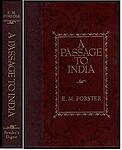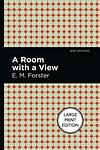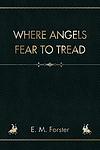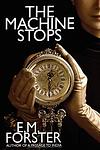E. M. Forster
E. M. Forster was an English novelist, short story writer, essayist, and librettist. Known for his narrative style which explored class difference and hypocrisy in early 20th-century British society, his notable works include 'A Room with a View', 'Howards End', and 'A Passage to India'. Forster's writing is characterized by its sympathetic nature and well-drawn characters, often examining human connection and the subtleties of social conventions.
Books
This list of books are ONLY the books that have been ranked on the lists that are aggregated on this site. This is not a comprehensive list of all books by this author.
-
1. A Passage to India
The novel takes place in British-ruled India, where the cultural divide between the British and the Indians is explored. The story focuses on the experiences of an Indian Muslim, Dr. Aziz, and his interactions with an English woman, Miss Quested, and her elderly friend, Mrs. Moore. After an expedition to the Marabar Caves, Miss Quested accuses Dr. Aziz of assault, leading to a trial that deepens the racial tensions and prejudices between the colonizers and the colonized. The novel is a critique of British imperialism and a study of the cultural and racial misunderstandings and ill-will between the British and the Indian people.
-
2. Howards End
This novel explores class relations and conflicting values in turn-of-the-century England. The narrative revolves around three families: the wealthy, capitalist Wilcoxes; the cultured, idealistic Schlegels; and the lower-middle class Basts. As their lives intertwine, the story grapples with themes of wealth, love, and death, and the struggle for personal connection in an increasingly impersonal society. The titular "Howards End" is a country home, and it becomes a symbol of England's past, present, and future.
-
3. A Room With a View
Set in Italy and England, the novel tells the story of a young English woman, Lucy Honeychurch, who travels to Florence with her older cousin and chaperone. During her stay in Italy, Lucy meets and falls in love with a free-spirited man, but due to societal pressures, she becomes engaged to a wealthy but pretentious man back home in England. The novel explores themes of societal norms, personal growth, and the struggle between heart and mind as Lucy must decide between conforming to societal expectations or following her own desires.
-
4. Aspects of the Novel
This book is a collection of lectures on literary criticism and theory, specifically focusing on the novel as a literary form. It discusses various elements of the novel such as story, characters, plot, pattern, and rhythm, and analyzes how these components contribute to the overall structure and meaning of the work. The author also explores the differences between flat and round characters, and the concept of 'prophecy' in fiction. The book serves as a guide for both readers and writers, providing insight into the art of storytelling and the techniques used in crafting a compelling narrative.
-
5. Where Angels Fear to Tread
This novel explores the clash of cultures between conservative English society and passionate Italy through the experiences of a young English widow, Lilia Herriton, who impulsively marries a younger Italian man, Gino Carella, while vacationing in Tuscany. The Herriton family, particularly Lilia's brother-in-law Philip, travels to Italy in an attempt to prevent the marriage and later to regain custody of Lilia's child after her death. The narrative critically examines the restrictive morals and prejudices of Edwardian England while highlighting the destructive effects of blind adherence to societal conventions.
-
6. The Machine Stops
In this science fiction novella, humanity lives underground in a technologically advanced, yet sterile world where all needs are met by the omnipresent Machine. Human interaction and the natural world are deemed unnecessary as individuals live in isolation, communicating only through instant messaging and video calls. The protagonist, who initially believes in the infallibility of the Machine, starts to question this way of life after a conversation with their rebellious son who lives on the surface. As the story unfolds, the Machine begins to malfunction, leading to a catastrophic collapse of society and forcing a confrontation with the unsustainable nature of their existence and the lost value of direct human experience and the natural world.





